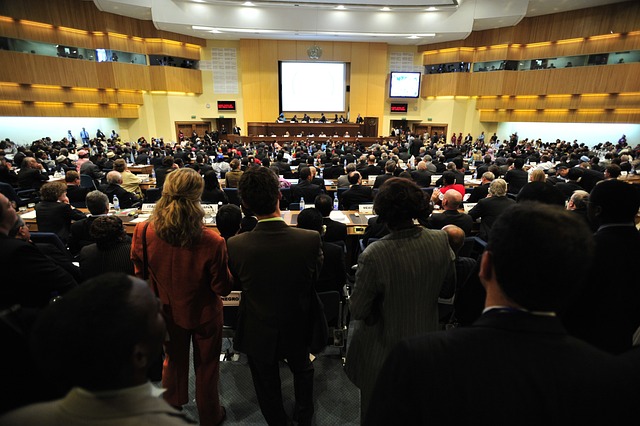Local SEO has become crucial for businesses aiming to thrive in their markets, with the Local SEO Conference playing a key role in educating entrepreneurs on trends, algorithms, and best practices. Staying informed through these events is vital for maintaining competitiveness and leveraging opportunities in the dynamic digital landscape. A successful local SEO strategy involves optimizing Google Business Profile (GBP), focusing on mobile-friendliness, using location-specific keywords, engaging with communities, and building high-quality backlinks. Tracking performance using analytics tools is essential for adapting to changing algorithms and user behaviors, such as voice searches and integrated local features like Google Maps.
In today’s digital age, local search plays a pivotal role in business growth, especially for small and medium-sized enterprises. Understanding how to optimize Search Engine Results Pages (SERPs) for local queries is crucial for gaining visibility and attracting nearby customers. This article guides you through the intricacies of Local SEO strategies, from grasping the power of local search to implementing effective tactics like keyword optimization, Google My Business integration, and building backlinks. Get ready to explore the secrets of a successful Local SEO Conference-worthy strategy.
Understanding Local Search and Its Impact on Businesses

Local search has transformed how customers discover and connect with businesses in their area. With a vast majority of users relying on search engines for local information, optimizing for Local SEO has become imperative for any business aiming to thrive in its region. The impact is significant; ranking well in local search results can drive increased foot traffic, phone calls, and online inquiries, ultimately boosting sales and customer engagement.
At the forefront of this evolution is the Local SEO Conference, an annual event dedicated to exploring and sharing strategies for maximizing local search potential. Here, industry experts delve into the latest trends, algorithms updates, and best practices tailored to local businesses. Staying informed about these developments is crucial for entrepreneurs to stay competitive in their markets and capitalize on the opportunities presented by the ever-changing digital landscape.
The Role of SERP Optimization in Local SEO Strategies

In today’s digital landscape, SERP (Search Engine Results Page) optimization is a powerful tool for local businesses aiming to thrive in their respective markets. As consumers increasingly rely on search engines for local services and products, optimizing for local SEO has become essential. This strategy ensures that your business appears at the top of local search results, making it more visible to potential customers within a specific geographic area.
Attending a Local SEO Conference can provide valuable insights into the latest trends and techniques in SERP optimization. Experts often share their knowledge on how to craft compelling meta descriptions, use location-specific keywords effectively, and leverage Google My Business listings to boost local search rankings. By staying informed about these tactics, businesses can enhance their online visibility and attract a steady stream of customers from their local community.
Key Components of a Successful Local SEO Campaign

A successful local SEO campaign hinges on several key components that work in harmony to boost visibility and drive targeted traffic from local search results. Firstly, claim and optimize your Google Business Profile (GBP), formerly known as Google My Business. This is a fundamental step that allows you to control how your business appears across Google Search and Maps, including important details like hours of operation, contact information, and customer reviews. Regularly updating and optimizing this profile with relevant keywords and high-quality media can significantly enhance local search rankings.
Additionally, ensuring a strong online presence on reputable local directories and review platforms is crucial. Local SEO Conference attendees often emphasize the importance of consistent NAP (Name, Address, Phone number) citations across these platforms to build trust and authority among local search engines. Engaging with customers through online reviews not only improves your local ranking but also fosters a positive brand image, encouraging more potential clients to choose your business over competitors.
Optimizing Your Website for Local Search Results

To optimize your website for local search results, start by ensuring it’s mobile-friendly and fast, as these are key factors in Google’s algorithms. Incorporate location-specific keywords naturally throughout your content, including in titles, headings, meta descriptions, and on-page URLs. Claim and verify your Google Business Profile (formerly Google My Business) listing, which acts as a local business directory entry, displaying essential details like address, hours, and phone number.
Leverage local SEO conference insights to stay updated on industry trends and best practices. Engage with local online communities, participate in local events, and build high-quality backlinks from relevant local websites. These strategies collectively enhance your site’s visibility in local search results, attracting more potential customers from your immediate geographic area.
Leveraging Google My Business for Enhanced Visibility

Google My Business (GMB) is a powerful tool for businesses aiming to boost their local search visibility, especially in the context of Local SEO strategies discussed at various Local SEO Conferences. By claiming and optimizing your GMB listing, you ensure that your business appears prominently in Google Maps results and local search queries. This platform allows you to manage your online presence by providing detailed information about your company, including location, operating hours, contact details, and even offering direct messaging capabilities.
Regularly updating your GMB profile with accurate data is crucial for attracting potential customers searching nearby. You can enhance its effectiveness by incorporating relevant keywords naturally in your business description and utilizing the platform’s various features like posting updates, adding photos, and engaging with customer reviews. This strategy not only increases your online visibility but also fosters trust and encourages local customers to choose your business over competitors.
Utilizing Keywords Effectively in Local SEO

In Local SEO, keyword utilization is a strategic art that demands precision and creativity. When attending a Local SEO Conference, one key takeaway often revolves around integrating location-specific keywords naturally within your online content. This means going beyond generic terms and incorporating phrases like “best [service] near me” or “[city name] top experts.” By doing so, you signal to search engines that your business is tailored for local customers, boosting your visibility in SERPs for localized searches.
Effective keyword usage also involves understanding user intent. When someone searches for a local service, they often seek immediate answers and relevant results. Optimizing meta titles, descriptions, and on-page content with the right keywords helps search engines comprehend your business’s local relevance and provide it as a top suggestion during such queries. This strategy not only enhances your online presence but also ensures that potential clients find you when seeking local solutions.
Building High-Quality Local Backlinks: Best Practices

Building high-quality local backlinks is a cornerstone of any successful Local SEO strategy, especially when preparing for a Local SEO Conference. These links act as endorsements from other reputable local businesses or websites, signaling to search engines that your site is valuable and trustworthy within your specific geographic area. To build these effectively, focus on securing mentions and links from relevant, authoritative local sources like community blogs, local business directories, and industry-specific platforms catering to your region.
Best practices include offering unique, locally-relevant content that naturally attracts backlinks; collaborating with local influencers or businesses for joint projects or guest blogging; and actively engaging in local online communities and forums. Remember, quality trumps quantity – a single link from a respected, relevant local site can be more powerful than multiple links from lesser-known or irrelevant sources.
Analyzing and Tracking Local SEO Performance

Analyzing and tracking local SEO performance is an indispensable practice for businesses aiming to excel in local search results, especially at a time when local SEO conferences highlight ever-evolving strategies. By employing robust analytics tools, marketing professionals can gain valuable insights into how their online presence resonates with potential customers within specific geographic locations. This process involves monitoring key metrics such as click-through rates (CTRs) from local searches, conversion rates of these queries, and the overall visibility in maps and organic search rankings for location-based keywords.
Regular tracking allows businesses to identify trends, pinpoint areas for improvement, and adapt their strategies accordingly. For instance, a Local SEO Conference might reveal new algorithms or ranking factors that impact local search results, prompting marketers to refine content, optimize meta tags, and enhance local listings to stay competitive in their regions.
Staying Ahead: Trends and Future of Local SERP Optimization

As technology evolves, so do search engine algorithms and user behaviors. Staying ahead in local SERP optimization means anticipating and adapting to these trends. One emerging trend is the increased importance of voice searches, as more people use virtual assistants like Siri or Google Assistant for quick, on-the-go information. Optimizing for long-tail keywords related to location and specific services can help your business rank higher in these voice search queries.
Another notable shift is the rise of local features in search results, such as Google Maps integration and featured snippets from trusted sources. Engaging in Local SEO Conference discussions and staying informed about algorithm updates are vital to capitalizing on these trends. By incorporating structured data markup, regularly updating your Google My Business listing, and creating location-specific content, you can enhance your visibility not only in traditional text search results but also in these emerging local SERP features.
